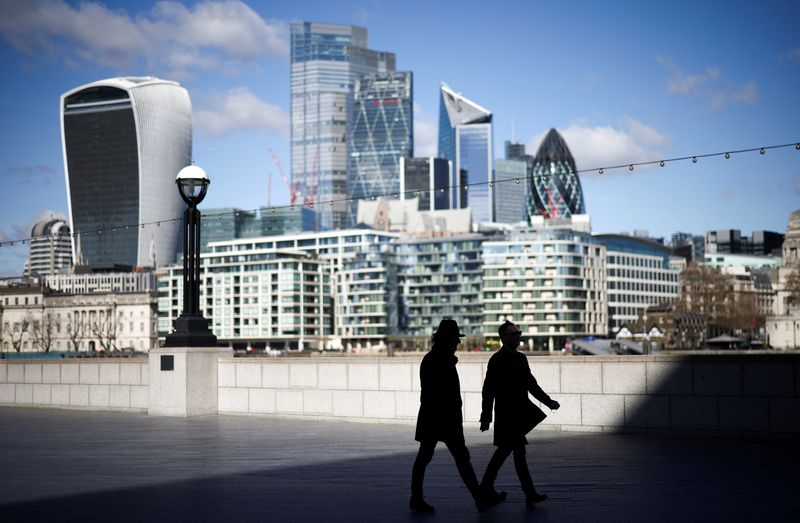LONDON (Reuters) - Growth among British businesses last month was a touch stronger than originally thought but there were further signs of how surging inflation is dragging on new orders, raising fears of a recession, a survey showed on Tuesday.
The composite S&P Global/CIPS Purchasing Managers Index - spanning services and manufacturing firms - edged up to 53.7 from a preliminary June reading of 53.1 and was higher than in May when it also came in at 53.1.
A PMI for just the service sector similarly rose to 54.3 from the "flash" reading of 53.4.
"The service sector remained in expansion mode during June, but persistently high inflation has started to dent discretionary spending and negatively influence demand projections across the board," Tim Moore, economics director at S&P Global (NYSE:SPGI) Market Intelligence, said.
New order growth in the sector was the weakest since early 2021 when Britain was under a coronavirus lockdown - despite a rebound in exports as pandemic restrictions lifted overseas markets and travel resumed. Overall activity was being supported by companies focusing on their backlogs of work.
While easing from a record high hit in May, the survey's input prices index was the second-highest since the composite PMI started 26 years ago, driven by intense wage pressures as well as surging fuel costs.
Many firms said they planned to push through further price rises in the second half of 2022.

Bank of England Governor Andrew Bailey said last week that there were clear signs of the economy slowing although the central bank was still ready to act "forcefully" if needed to keep a grip on an inflation rate heading for 11%.
Respondents in the PMI survey were their gloomiest since May 2020 as worries mounted about a recession, persistently high inflation and the impact of rising interest rates on demand.